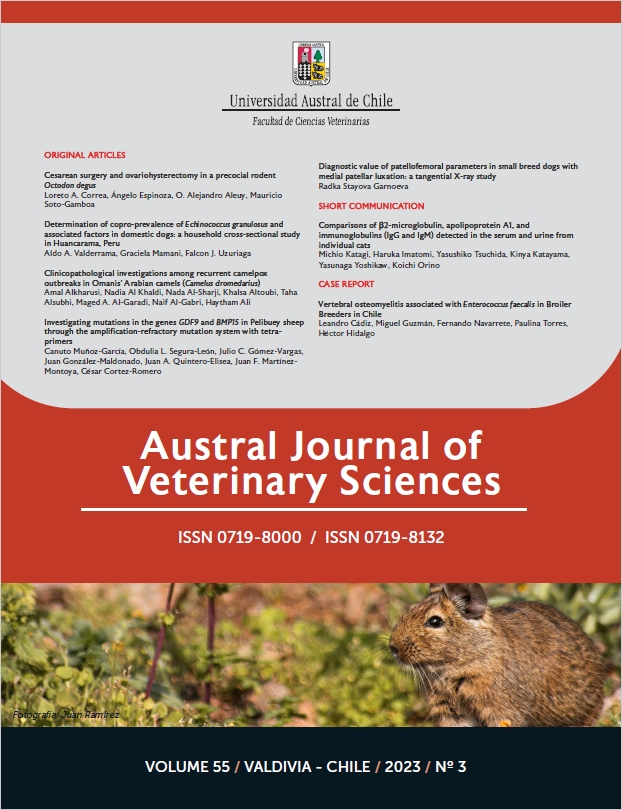Determination of copro-prevalence of Echinococcus granulosus and associated factors in domestic dogs: a household cross-sectional study in Huancarama, Peru
Main Article Content
Abstract
Echinococcosis is an important disease with regard to public health and the leading role that humans have in fulfilling the transmission cycle. The objective of this study was to determine the copro-prevalence of Echinococcus granulosus in dogs from homes in Huancarama, Peru, and the factors associated with this infection. The research was basic, prospective, quantitative, observational, cross-sectional, and analytical. This study was approved by the Institutional Ethics Committee for the Use of Animals (CIEA) and the Institutional Research Ethics Committee (CIEI) of the Universidad Peruana Cayetano Heredia. The sample comprised of 519 homes. A geographic information system (GIS) was used to develop layers of information on the study area with georeferencing of the locations of these homes. Information processing was performed using Excel for Windows 2010, Statistical Package for the Social Sciences SPSS 25 software, and ArcGIS 10.8. Univariate and multivariate logistic regression tests were performed to determine the possible associations. Categorical variables were statistically contrasted using the chi-square test with 95% confidence intervals and P ≤ 0.05, which indicated the extreme degree of significance. It was found that 94.4% of the houses had dogs and that the prevalence of E. granulosus was 27.7% (95/343; 95% CI 22.8-32.6). The distance from the house to the cattle slaughterhouse was associated with disease occurrence (P < 0.01). Locations in the Suni altitude zone presented a higher prevalence (41.8%) (P < 0.05). Lack of knowledge that humans can contract echinococcosis was associated with disease occurrence (P < 0.05).


 https://orcid.org/0000-0001-8444-3412
https://orcid.org/0000-0001-8444-3412